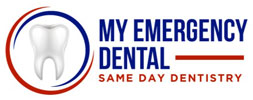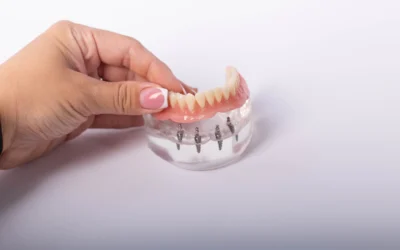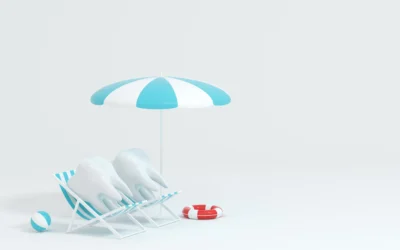It’s not good for your teeth, and you may not even be aware that you are doing it.
Bruxism, a habit of clenching your jaw or grinding your teeth, is common worldwide. A fifth of the population does it in one form or another. Most people do it in their sleep, waking with sore teeth, jaw muscles, or no symptoms at all. Only five percent of people grind or clench their teeth while they are awake.
How can you tell if you are among the many that grind and clench? And most importantly how can you stop doing something you only do when you sleep? Let’s explore the answers to those questions.
The Causes Of Bruxism
There are several common causes for teeth grinding, including:
Age – Some children and young teens grind their baby teeth but stop as soon as all their permanent teeth come in, and they grow up. The baby teeth may be misaligned and uncomfortable.
ADHD – Hyperactive children and children with specific health issues are more likely to grind their teeth. It can be a result of the condition itself or caused by their medication.
Anxiety – Children with anxiety disorders or long-term stress can also develop the habit as a coping mechanism.
Stress – Many adults also have high levels of prolonged stress and take it out on their teeth, whether awake or asleep. Muscle tension isn’t restricted to teeth. High stress causes muscle tension throughout the body. Some body parts wear down faster and show symptoms quicker than others.
Hyperfocus – Sometimes, we tense when concentrating on something challenging. These behaviors may become habitual and you may not even notice them.
Drugs – Some antipsychotics, antidepressants, and recreational drugs like amphetamines, cocaine, and ecstasy cause muscle tightness in the jaw, face, and neck.
Lifestyle – Smoking, drinking, dehydration, and nutritional deficiencies are linked to Bruxism.
Sleep Disorders – People who suffer from sleep apnea and night terrors are more likely to develop Bruxism, whether from the disorder or from the lack of sleep and inability to manage stress.
Neurological Disorders – Parkinson’s and epilepsy are also associated with teeth grinding and jaw clenching.
How Do I Know It’s Bruxism?
If you’re asleep when it happens, how do you know if teeth grinding or jaw clenching is the source of your pain? Often family members will notice teeth grinding in a child, or you’ll learn it from a significant other, but there are some telltale signs.
- Wear And Tear: Teeth grinding wears down the tops of the teeth, making them flatter. Clenching can break fillings, cause uneven wear, chips, and breaks, and lead to abscesses, as tooth damage allows bacteria to fester.
- Hardened Jaw Muscles: The constant tension gives the jaw a steady workout making the masseter (jaw) muscles rock hard and well-defined.
- Facial Pain: The jaw wasn’t meant to handle 250 pounds of constant pressure. The overworked muscles can lock, making talking, eating, or drinking difficult. Pain can travel from the temples down the sides of the face to the neck and shoulders.
How Do I Stop Hurting My Teeth At Night?
Your dental care services provider can create a custom fitted mouth guard to wear at night to protect your teeth. These guards cushion teeth against clenching and prevent teeth from grinding against one another.
To stop the behavior, there are several tactics you might try.
- Talk to your doctor about your medications. If one of them could be contributing to the behavior, trying a different drug may alleviate the problem.
- A muscle relaxer before bed may help.
- Relaxation exercises before bed to alleviate stress will help with tension-related Bruxism.
- Encourage regular sleep patterns by:
- Get 30-60 minutes of direct sunlight daily (early) to promote healthy circadian rhythms. (Remember your sunscreen.)
- Participate in 20-30 minutes of aerobic exercise daily (not right before bed.)
- Avoid blue light emitted from electronic screens. They will keep you awake.
- Keep to a sleep schedule.
- Avoid stimulants like caffeine before bedtime.
- Consider changing lifestyle factors that contribute to your symptoms.
What About During The Day?
For the five percent that use Bruxism to deal with stress during the day, your efforts can be more deliberate.
- Biofeedback: Using monitors to alert you when you clench your teeth, you can learn to recognize the feeling and relax. It might take a while to overcome coping techniques you’ve used for extended periods. Be patient with yourself.
- Relaxation Exercises: One of the easiest and most versatile is box breathing. If you’re subtle, you can do it anywhere, even in the middle of a business meeting. Inhale slowly for five seconds, hold for five seconds, exhale for five seconds, and hold for five seconds. Repeat.Your body can’t maintain fight or flight during this breathing pattern. Stress hormones decrease, muscles relax, and you can open your jaw just enough to release tension.
- Massage: Rolling a tennis ball between your palm and the muscles along your jaw, cheek, and temple can ease the tightened muscles.
If you think you may be clenching or grinding your teeth, ask your dentist to look for signs of it at your next dentist appointment. If you have signs of bruxism, your preventive care dentist can help you find ways to overcome it and protect your teeth from being damaged by it. Don’t let the stress of life eat away at your oral health.



